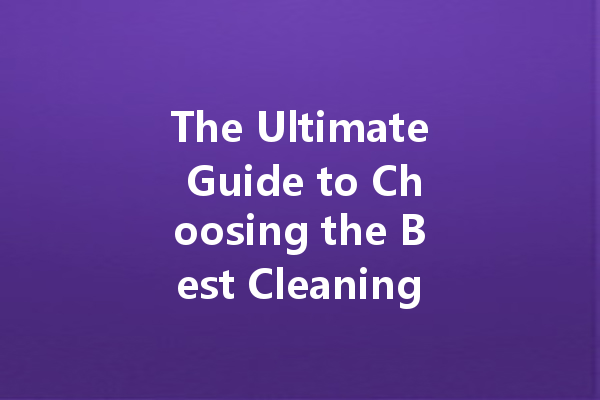Cleaning agents are essential for maintaining a hygienic environment, whether at home, in the workplace, or on the go. With a variety of options available, it can sometimes be overwhelming to choose the right one for your needs. In this guide, we’ll explore different types of cleaning agents, their uses, and tips for selecting the best product for your cleaning tasks.
Understanding Cleaning Agents
Cleaning agents are substances used to remove dirt, stains, odors, and impurities from surfaces. They can come in various forms, including liquids, powders, and aerosols, and are designed for specific types of cleaning tasks. Knowing the right cleaning agent to use can make a significant difference in the effectiveness of your cleaning efforts.
Types of Cleaning Agents
There are several categories of cleaning agents, each suited for certain applications:
These versatile cleaners can be used on a variety of surfaces, including countertops, floors, and appliances. They are suitable for everyday cleaning tasks and typically contain mild detergents.
Disinfectants are specialized cleaning agents designed to kill germs, bacteria, and viruses. They are particularly important in areas where hygiene is crucial, such as kitchens and bathrooms. Look for products that specify “EPA registered” on their labels for effectiveness.
Ideal for removing tough grease and grime, degreasers are commonly used in kitchens and garages. They are particularly effective on stovetops, ovens, and heavy machinery.
Formulated to leave glass surfaces streak-free, glass cleaners are essential for windows and mirrors. They often contain ammonia or vinegar as key ingredients to cut through grime.
These cleaners are designed for specific items, such as jewelry cleaners, leather cleaners, and carpet cleaners. Using the proper specialty cleaner is crucial to prevent damage and ensure a thorough cleaning.
Selecting the Right Cleaning Agent
When choosing a cleaning agent, consider the following factors:
Always check that the cleaning agent is compatible with the surface you intend to clean. For instance, certain cleaners may damage wood or leather surfaces.
Identify the nature of the stain or dirt you are dealing with. For greasy stains, a degreaser will be effective, while for mold or mildew, a specialized mold cleaner should be used.
Read labels carefully to understand the safety precautions associated with the cleaning agents. Some products contain harsh chemicals that may be harmful to pets or children. Look for eco-friendly alternatives whenever possible.
Consider how easy it is to use the cleaning agent. Spray bottles can simplify the application process, while concentrated formulas may require dilution, which could be inconvenient for some users.
Eco-Friendly Cleaning Agents
With increasing awareness about environmental impact, many consumers are turning to eco-friendly cleaning agents. These products use natural ingredients and are free from toxic chemicals. Vinegar, baking soda, and lemon juice are popular DIY options that can effectively tackle many cleaning tasks without harming the planet.
DIY Cleaning Agents
If you prefer a more hands-on approach, creating your own cleaning agents at home can be both economical and efficient. Some simple recipes include:
Conclusion
Choosing the right cleaning agents can make your cleaning tasks more efficient and effective. By understanding the various types of cleaning agents available, considering the specific needs of your surfaces, and opting for eco-friendly options, you can maintain a clean and healthy environment. Remember, whether you go for commercial products or DIY solutions, the key is to find what works best for you and your cleaning needs. Happy cleaning!

